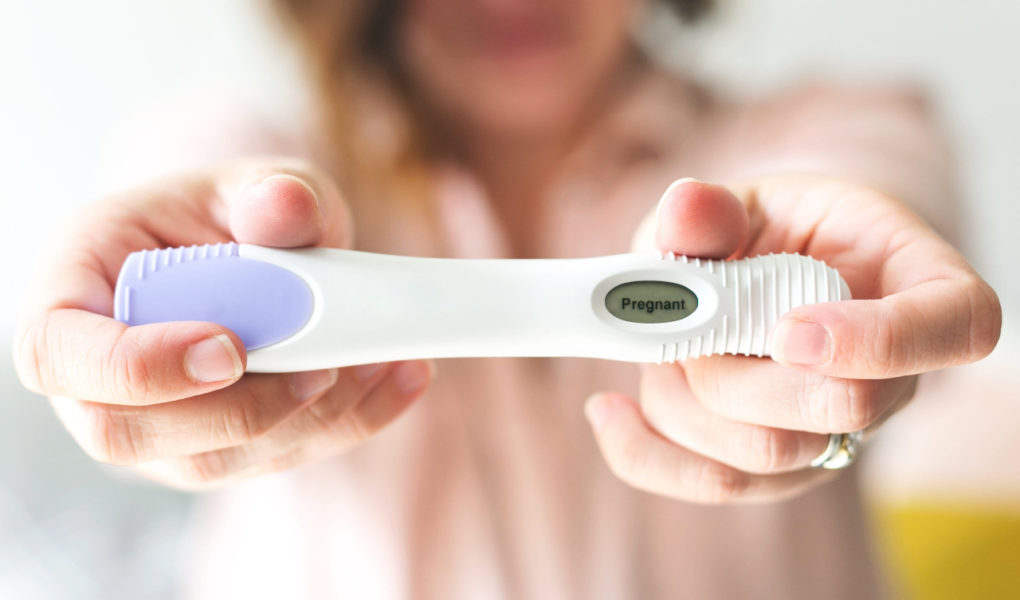Table of Contents
The fetus during the first month of pregnancy
Pregnancy begins with fertilization, i.e. the meeting of the egg and sperm. Once the egg has entered the body, the nucleus of the sperm increases, as does the nucleus of the egg. The two cells meet and eventually fuse: the zygote, the first cell at the beginning of life, is formed. This egg cell carries all the genetic material necessary to create a human being.
About thirty hours after fertilization, segmentation begins: the zygote divides several times as it is deposited in the uterine cavity. Nine days after fertilization, implantation occurs: the egg attaches to the endometrium.
In the third week of pregnancy, the egg becomes an embryo, and its heart beats. Now, at 1.5 mm, its cells continue to divide and differentiate into organs.
By the end of the first month of pregnancy, the embryo is about 5 mm long. It has a separate head and tail, as well as hands, inner ear, eyes, and tongue. Organogenesis has begun and blood circulation between the fetus and the mother is functioning. Ultrasound examination in the first month shows pregnancy and a heartbeat can be detected.
Changes in the mother during the first month of pregnancy
Although life begins in her body, the mother is not aware of it in the first month of pregnancy. Pregnancy can be suspected only when menstruation is delayed, after at least 4 weeks of amenorrhea. The embryo, that will develop into a fetus, is already two weeks old.
However, the mother’s body rapidly undergoes deep changes under the influence of pregnancy hormones: hCG is secreted by the trophoblast (the outer layer of the egg), which in turn maintains the activity of the corpus luteum (follicle), which secretes the progesterone necessary for the egg to implant properly.
This hormonal context can cause various pregnancy symptoms in the first month:
- Nausea
- Sensitivity to odors
- Sore nipples and swollen breasts
- Some irritability
- Drowsiness during the day
- Frequent urination
The uterus grows from the size of a walnut to the size of a clementine during pregnancy. This increase in size can cause stretching and even pain in the lower abdomen during the first few months of pregnancy.
A pregnant woman’s belly is not visible at one month, but it grows month by month during pregnancy.
>>> KEEP READING – Vacations and travel: which precautions for pregnant women?
The first month of pregnancy, things to do or prepare for
After a few days without a period, take a pregnancy test.
If the test is positive, make an appointment with a gynecologist or midwife. The first mandatory prenatal check-up should take place before the end of the first trimester, but it is advisable to seek advice beforehand.
Continue to take vitamin B9 if prescribed at your prenatal visit.
Advises
If you experience bleeding or severe pain in your lower abdomen or side during the first month of pregnancy, it is important to see a doctor to rule out the possibility of miscarriage or ectopic pregnancy.
If it has not been done during prenatal care, an oral examination is recommended to prevent complications during pregnancy.
Even if the pregnancy is not yet known, it is advisable as a precaution to avoid risky practices: drinking alcohol, taking drugs, smoking, having an X-ray, taking medication. This is particularly important, as the embryo is very sensitive to teratogens (substances that can cause abnormalities) during the organogenesis phase.
Alcohol and tobacco
Alcohol consumption during pregnancy can cause fetal alcohol syndrome, which can disrupt the growth of the one-month-old embryo. This syndrome causes malformations, neurological disorders, and growth retardation. The baby is more likely to be born prematurely.
Smoking is harmful to everyone but is even worse for a pregnant woman and her unborn baby. Before becoming pregnant, smoking reduces fertility. Smoking in the first month of pregnancy increases the risk of miscarriage and premature birth. Smoking should be prohibited during the 9 months, but especially for the fetus in the first month. It affects its good development in utero. The fetus may born with birth defects. In addition, smoking during pregnancy increases the risk of respiratory problems for the baby after birth.
As for taking medication during the first month of pregnancy, it should only be done on the advice of a physician. Pregnant women should not self-medicate. There are natural and safe ways to relieve the symptoms of pregnancy. Many medications hurt the developing one-month-old embryo because it cannot eliminate them. It is very important to be careful when taking medications, especially during pregnancy.



